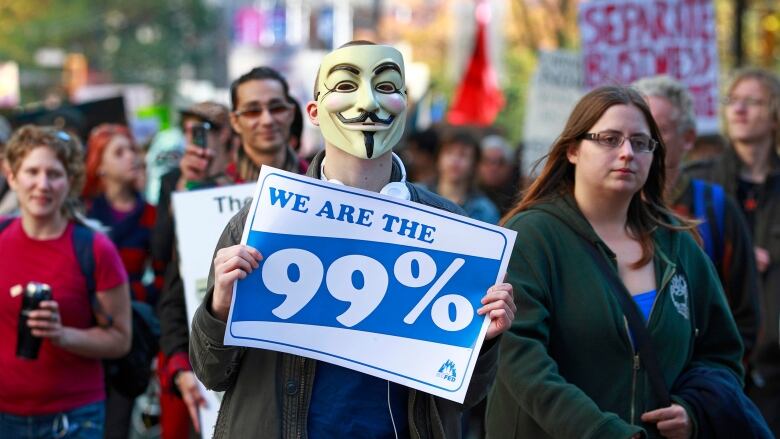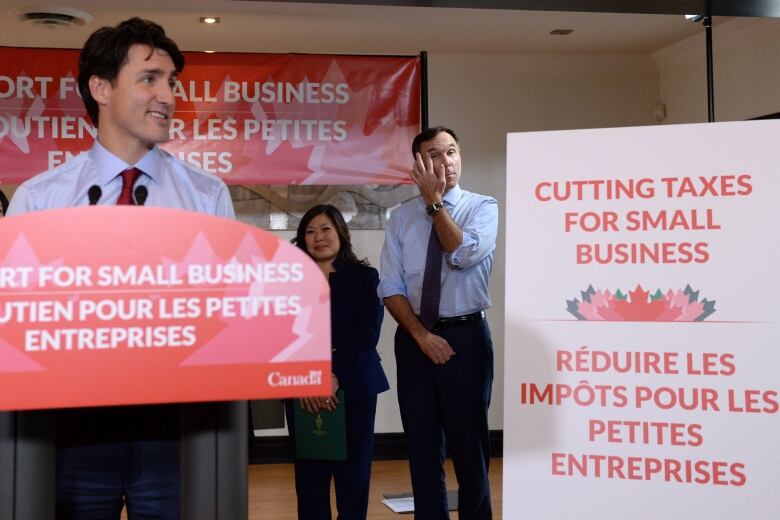Time for Trudeau government to show leadership on income inequality
As the income gap widens, Canada is in danger of becoming a country ruled by the rich: Louis-Philippe Rochon

The Trudeau government keeps surprising us all with its conflictual and incoherent approach to policy. Its latest flip-flop centres around an issue that has possible long-term consequences income inequality.
While a few months ago, Prime Minister Justin Trudeau was saying "The economy is doing well, people are doing well, and it's partially because we're removing some of the benefits for the wealthiest," tax reforms now seem to be going nowhere, and the government seems to be even turning a blind eye (again) to recent news of offshore havens for the wealthy.
Trudeau's reluctance to move on these changes is puzzling for two reasons.First, a plurality, if not a majority, of Canadians approve of taxing the wealthiest.Indeed, there is little doubt income inequality has become one of the biggest economic and political problems today.
Second, economic research is clearly showing that increasing taxes on the wealthiest Canadians will not hamper economic growth.
Given these two arguments, the federal government's about-face is certainly puzzling and raises the question: why? Certainly, there was a backlash from those who would eventually pay higher taxes, but they are, by definition, the one per cent or the 10 per cent.So why risk alienating a much larger proportion of the electorate in order to placate the one per cent?

Perhaps it is for political reasons or even for reasons rooted in Trudeau's own personal values, where rising inequality is an acceptable means to an unspecified end.But refusing to deal seriously with growing inequality poses serious threats not only obvious economic and social ones, but also threats to our democratic institutions.
In the last three decades or so, inequality has clearly increased dramatically. We are now as unequal a society as we were back in the Depression of the 1930s. If governments don't start aggressively addressing the issue soon, we may reach a tipping point from which it will be difficult to retreat.
Several years ago, while lecturing in Mexico, I spoke of the "dual economy" an old concept and of how there seems to be a new economic structure emerging: a thriving financial economy serving the one per cent (of the one tenth of the one per cent), and a stagnant economy where workers are losing ground every day and labour rights are disappearing.
The question I posed to the audience at the time was, "Isthis sustainable?"In other words, can our economic system persist with ever-increasing inequality and such flagrant social and economic disparities?
The answer depends on how you define sustainable.I believe it can sustain itself, but it will be under a different configuration, one that is profoundly undemocratic.
A move toward government by the rich
Indeed, if it continues, we will continue to witness the slow transformation of our capitalist and democratic system into an oligarchical system, where the very few rich control the political and economic levers of society. A few days ago, Bernie Sanders warned us about the "the rapid movement toward global oligarchy."
If you think I am exaggerating, well, consider that the same sentiment was echoed in 2014 by economics Nobel Laureate Robert Solow: "If that kind of concentration of wealth continues, then we get to be more and more an oligarchical country, a country that's run from the top."
Nobel Laureate Paul Krugman made the same observation at around the same time.

Those in the top one per cent end up ruling our political parties and systemsthey fund our political parties, and attend fundraisers that give them access to our political leaders.In some cases, they become a minister of financeor treasury secretary. The line that divides politics from private financial wealth becomes murkier and murkier. They then adopt laws that reduce taxation on corporations, and reduce taxation on the very rich.
In many ways, we have already become a system where the rich govern themselves.This may not be a new argument, but it is one that is becoming all too real.
Every so often, they throw crumbs to placate the 99 per cent.After all, a system that needs to sustain itself requires a stable core.
The Trudeau government must now show true leadership and deal with inequality in a forceful and decisive way before it is too late, and before they encourage the seeds of oligarchy to grow even more.
This column is part of CBC's Opinion section. For more information about this section, please read this editor's blog and our FAQ.












_(720p).jpg)


 OFFICIAL HD MUSIC VIDEO.jpg)
.jpg)



























































































